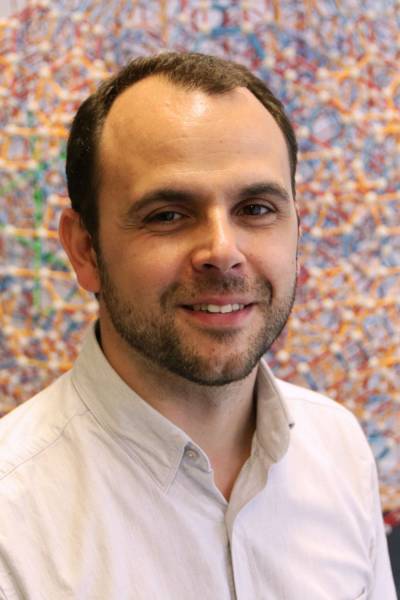Manolis is Professor of Artificial Intelligence and Analytics in Education at the UCL Knowledge Lab, a research centre based at IOE, UCL's Faculty of Education and Society.
What is your role and what does it involve?
I conduct research to understand and to develop digital technologies to support and transform education, and beyond. In particular, my interests and experience lie at the intersection of Artificial Intelligence (AI), Human-computer Interaction (HCI), and Educational Technology (EdTech). My research agenda revolves around the design, development and thorough evaluation of supportive technologies for learning, teaching, and research, like:
- digital environments that through their design, support learners by providing direct, individualised, and adaptive (some call it 'intelligent') feedback
- tools that utilise students' digital data from their digital and physical interactions in order to increase teachers' awareness of the outcomes and processes involved in learning, or help us answer research questions and develop our understanding of the role of technology in learning.
What's the most important thing you've learned from your students about the subject you teach?
Every term I learn something new. In general, I have learned to value individual differences, preferences, and interests.
“Specific to my field I learned a lot from our teacher participants, particularly that most of them are really interested in 'opening the black box' that is Educational Technology and not just adopting it without criticism or understanding of how it works.
This has guided a lot of my research the last few years and particularly the Mathematical Creativity Squared project where we designed and tested iAuthELO – an authoring environment for intelligent exploratory learning objects.
What working achievement or initiative are you most proud of?
I am proud of all my projects! The EU-funded iTalk2learn project was the first one where we had the opportunity to engage in a full cycle from design and formative evaluation, to re-design to and a relatively large-scale evaluation in both UK and Germany. Part of our work at UCL was the design of Fractions Lab, an exploratory learning environment for learning fractions in primary.
We won a couple of research awards (in the European Conference of Technology Enhanced learning and the Artificial Intelligence in Education conference) and an honourable mention for potential commercial impact by business angels in iKnow. It ended in 2015 but we opened interesting research avenues, as can be seen by the diverse publications that keep coming.
Two in particular stand out (one for the prestigious ICLS conference on how the combination of exploratory and structured tasks fosters robust knowledge and one currently in press in the highly-ranked UMUAI journal on a special issue on impact of learning modelling). We also had several consultancy opportunities based on the know-how of that project, with two London-based start-ups adopting some of the results.
But beyond this external recognition, what I am really proud of is seeing teachers and students, in particular, get excited when they are working with the tools we developed (see this teacher testimony).
Tell us about a project you are working on now which is top of your to-do list.
Somehow, all my projects are at the top of the to-do list! I am excited by the prospects of a consultancy at the moment, a large-scale evaluation in the state of Aguascalientes, Mexico. They are truly innovating there with a state-wide implementation of technology for STEM learning. We are doing an independent evaluation looking at adoption processes and both learning and motivational outcomes.
What would surprise people to know about you?
I almost became a captain instead of a researcher and in my (little) spare time I enjoy sailing and scuba diving with my wife – I love everything to do with water!
What other piece of research outside of your own subject area interests you?
I've always been interested in Psycholinguistics and Cognitive Science. I am also fascinated by the potential of Neuroscience in general, and its application in education. The overlap between these areas is fascinating, potential applicability combined with deep understanding of phenomena. Lately, it is much more interesting, at a personal level, as I observe my three trilingual kids turning noise into language.
Last updated 27 July 2023.
 Close
Close


